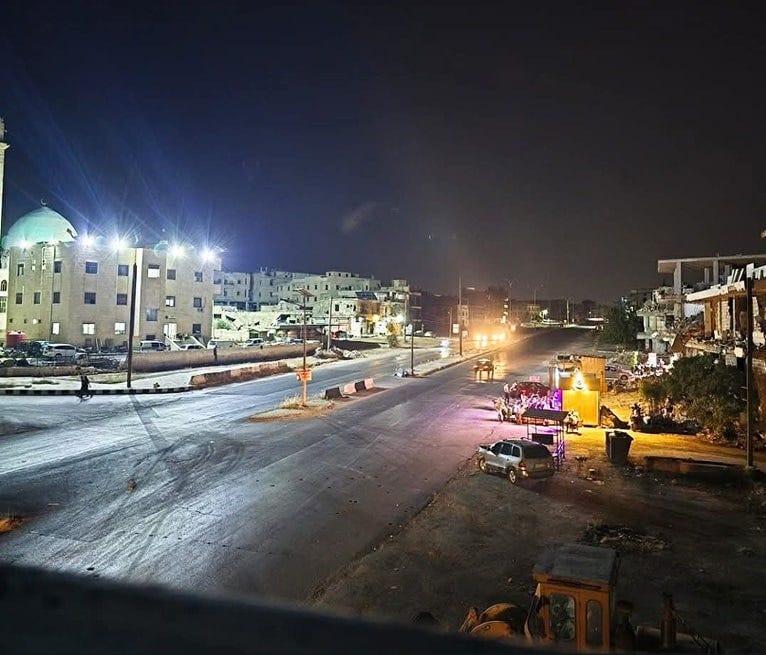Intra-Sunni Arab Tensions in Syria: The Case of Huraytan in North Aleppo Countryside
A lot of media coverage and analysis of post-Assad Syria tends to focus on tensions between different sects (e.g. Alawites and Sunnis) and ethnic groups (mostly the Arab-Kurdish angle embodied in the relations between the central government and the Kurdish-led Syrian Democratic Forces). Although it is not wrong to focus on these matters, it should also be appreciated that internal societal tensions within Syria extend beyond these broad levels- something that should not come as a surprise.
With the frequent talk about the need for proper ‘transitional justice’ in Syria, one of the potential issues at the local level is how communities should deal with individuals and families who are perceived as having supported the Assad regime during the war. Should they simply be allowed to get on with their lives, or held accountable in some way? Can they be welcomed back by those who were opposed to the regime? As I have noted before, the appellation of ‘Syrian civil war’, despite the victory of the revolution that toppled the Assad regime, remains valid because this war fundamentally involved Syrians taking different sides, even if overall only a minority of them percentage-wise stood with the regime. This is true at both the national level and the more local level.
The issue of ‘transitional justice’ and living with former regime supporters (real and alleged) has recently come to the forefront at the local level in the north Aleppo countryside town of Huraytan (whose population is Sunni Arab), not too far from the border with Turkey. Reports of local demonstrations and calls for expelling ‘shabiha’ from Huraytan (i.e. those seen as having supported the former regime) led to the intervention of the Public Security Apparatus in order to calm the situation. A delegation from Huraytan has also visited Aleppo province’s security director, who has promised that those implicated in the crimes of the former regime will be held accountable, while affirming that the matter should be dealt in a way that requires ‘patience’ and ‘discipline’ instead of people randomly taking the law into their own hands.
Below is an interview I conducted today with a person from Huraytan regarding the recent events. Any parenthetical insertions in square brackets are my own.
Q: How is the situation in Huraytan?


